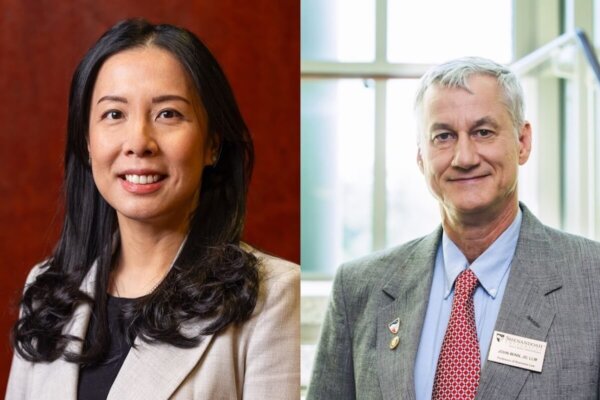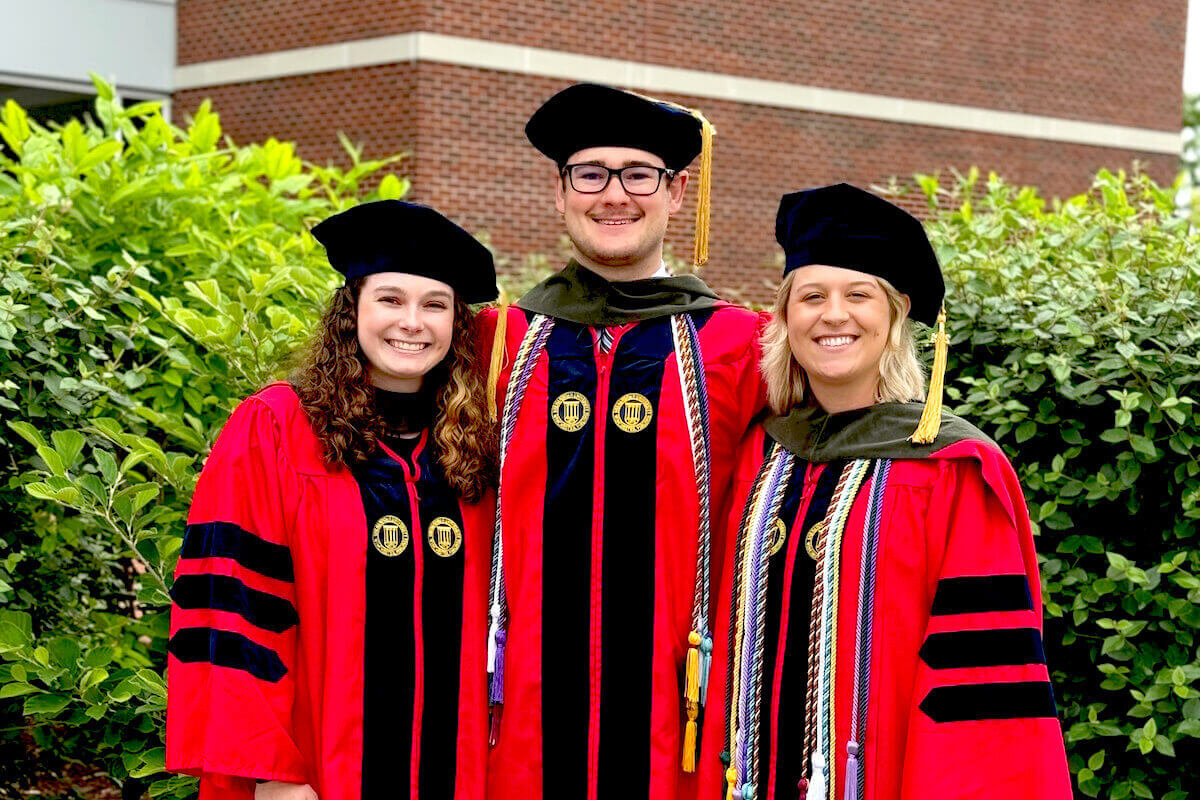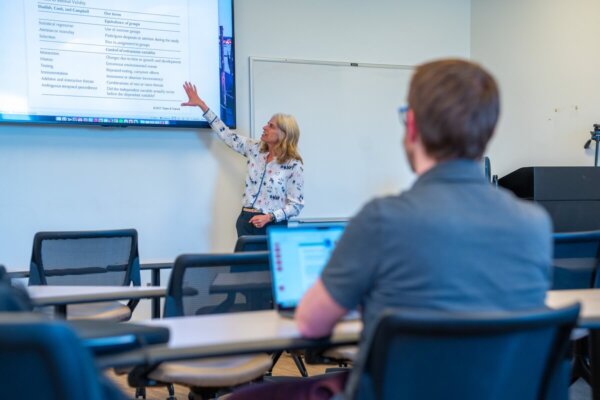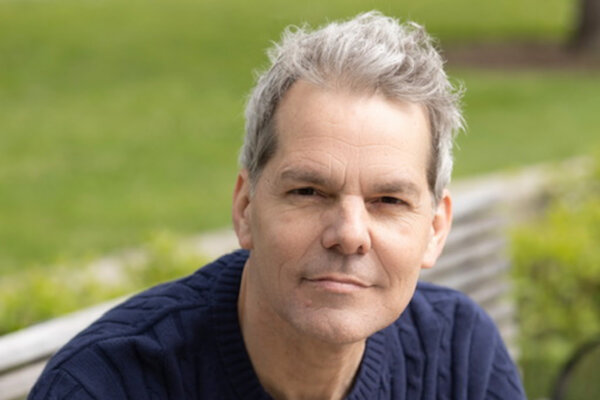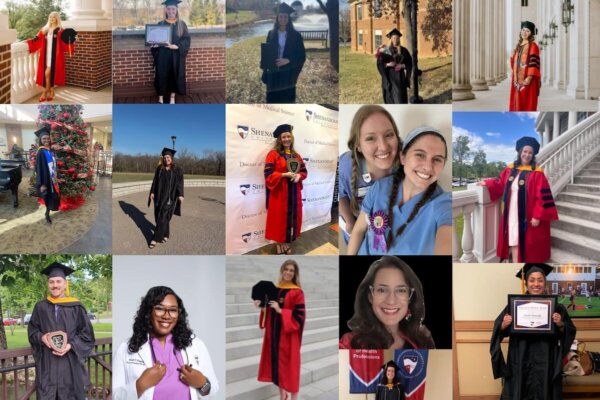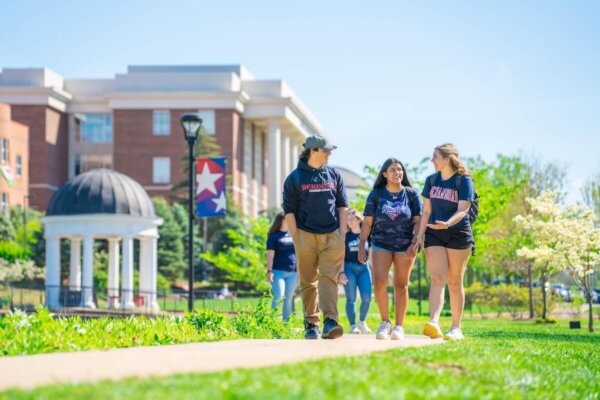Army Veteran Finds Stable Educational Experience At Shenandoah
J.D. Oldaker ’24 is pursuing a Bachelor of Arts in Virtual Reality Design
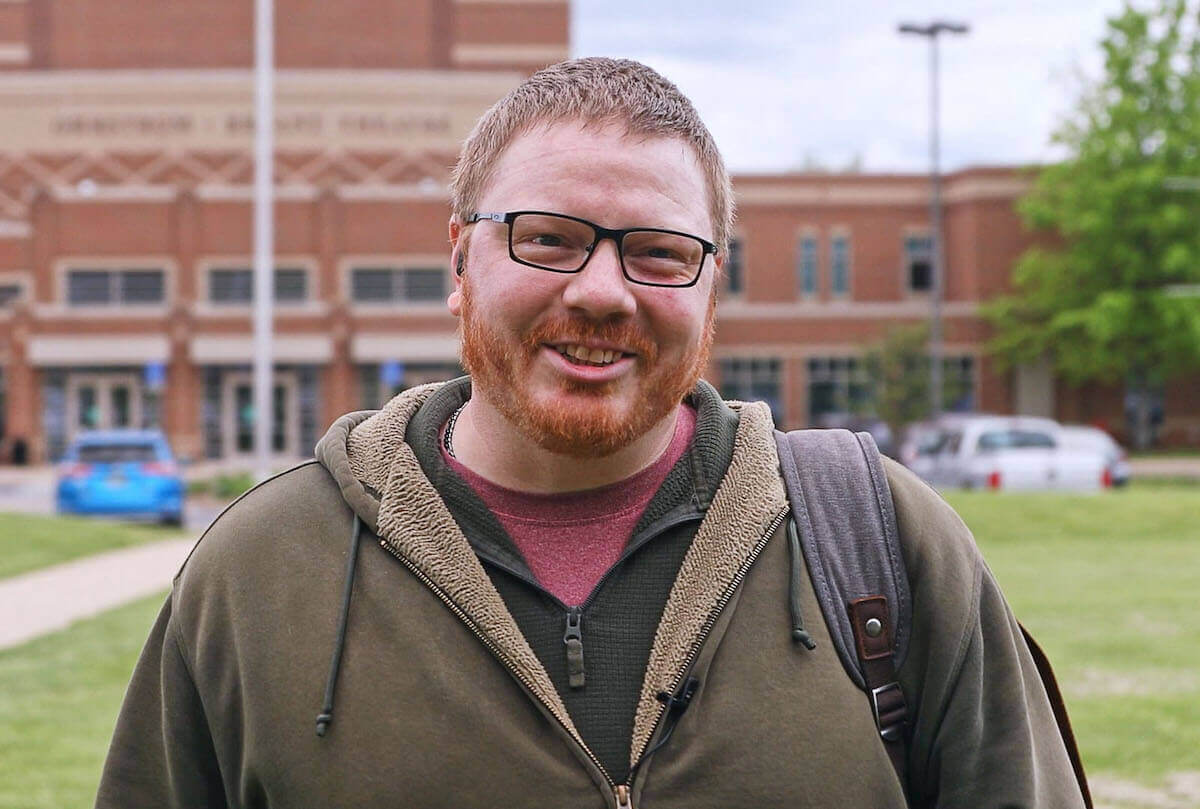
When J.D. Oldaker left the U.S. Army in 2012, after more than 9 years of military service, he decided that he would pursue a college degree. Finally, a decade later, Oldaker is firmly on track to realize that goal at Shenandoah University.
Oldaker ’24, who is working toward a Bachelor of Arts in Virtual Reality Design at SU, intended to pursue higher education after leaving the Army, but his plans didn’t work out. He ultimately started his academic career on the East Coast, earning an associate degree at a community college. He re-entered the working world in Massachusetts.
But as Oldaker started working on his bachelor’s degree while in New England, his company’s contract ended and he had to leave school, he said.
He made one more attempt to hold down a job in Washington, D.C., he said, but again the company’s contract ended and he decided, once and for all, that he was going to finish his degree. Shenandoah’s location – Oldaker moved to the Winchester area about two years ago – and its virtual reality program made the university stand out.
I looked at other schools that had VR programs, but I think what Shenandoah had was more robust. And having worked with VR in the last two years, I like it. I saw the potential it has for not only people in training but also education. Being able to relay my personal experiences virtually to others so we can connect on some level, be it real or virtual, is incredible. There’s that potential there.”
J.D. Oldaker ’24, virtual reality design student
Oldaker, 38, also said Shenandoah, and particularly Associate Registrar Niccole Gatliff, made it easy for someone like him to find his footing as a college student.
“When I first started (at Shenandoah in 2021), I had a six-year gap from my last school to this one. Going back to Niccole and saying, ‘I’m lost’ – she was a huge help. And a lot of people here are very positive and reassuring when it comes to, especially, someone my age coming back to school,” Oldaker said.
Oldaker’s roundabout path to Shenandoah fell right in line with the nomadic lifestyle he’s known since birth. As a self-proclaimed third-generation “military brat,” Oldaker, whose mother and grandfather both served, never spent much time in any one place while growing up.
“Throw a dart, pick a state and I spent at least a year to two years there,” he said, noting that he was born in California and attended high school in Maine.
That lifestyle fortified the sense of camaraderie that exists in the military – “No matter where we went, we always had family,” Oldaker said – but it also presented challenges that Oldaker said made his childhood difficult.
“I didn’t actually come out of my shell until probably high school,” Oldaker said.
Despite those challenges, Oldaker knew by age 10 that he wanted to follow the same path as his mother and his grandfather, and he entered the U.S. Army immediately after high school in 2002. Oldaker served over nine years in the Army, during which he deployed twice to Iraq and spent two years in South Korea. He left the Army as a sergeant on Valentine’s Day 2012.
What I learned is everyone’s different, and it’s great. Understanding, learning new cultures, learning new people and being able to kind of relate and connect with them in a way that most people in the United States can’t do. I’ve trained with some of the most professional, yet hilarious and calming, individuals I’ve ever met in my life. And I’ve also had to suffer some of the pains that come with wartime. But all in all, to me, it was a great experience. I feel fortunate that I was able to serve those nine years, and to do it with respect and to do it with honor.”
J.D. Oldaker, on his Army experience
Though not scheduled to earn his bachelor’s degree for another two years, Oldaker, with the help of the Shenandoah Community Capital Fund’s Startup Shenandoah Valley (S2V) program, is already working to establish a company built on a VR platform that will help build stronger relationships between mental health patients and their clinicians via the use of virtual avatars.
Oldaker said Shenandoah’s plan to restore the former National Guard armory on campus and transform the space into the Hub for Innovators, Veterans and Entrepreneurs (HIVE), is a win for veterans like him who are trying to better establish themselves professionally in civilian life. The HIVE will allow expansion of SU’s existing Veterans, Military and Families Center, will house the university’s AR/VR programs, and will serve as a technological hub for the northern Shenandoah Valley and a driver of economic development in the region.
“That’ll be a tremendous help, especially for veterans. Having the means of identifying and speaking with those we can work with, and developing our own skills, not only improves our personal success, but the community’s success, as well. That’s always a benefit,” Oldaker said.
